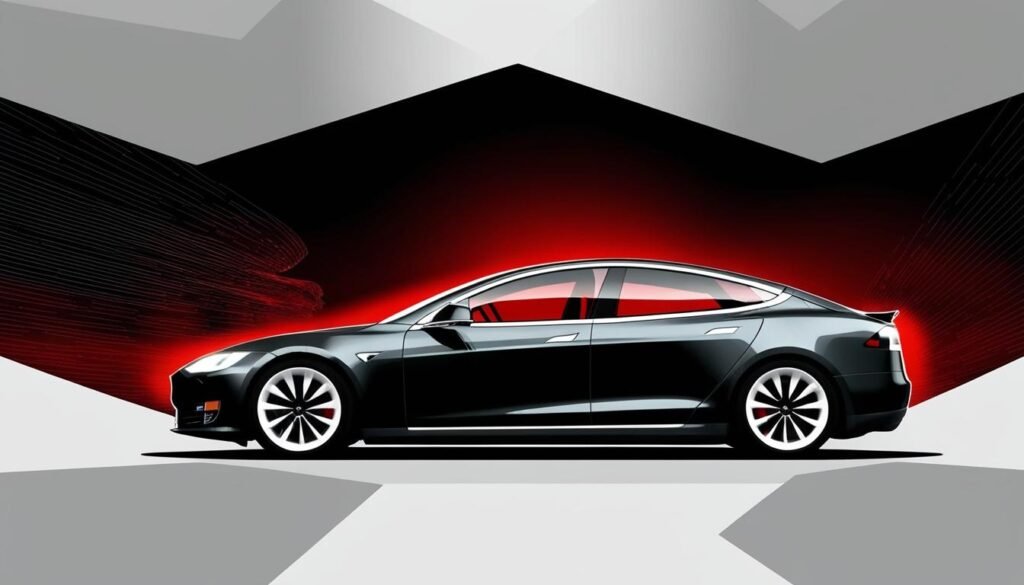Tesla Inc. is leading a visionary approach to transform transportation through advanced AI technologies, promising smarter and safer mobility solutions for the future.
In a visionary approach to revolutionising transportation, Tesla Inc. (Nasdaq:TSLA) is pushing the boundaries of artificial intelligence (AI) to redefine not only vehicle autonomy but also the entire landscape of transportation. Under the direction of Elon Musk, the company is paving a path that anticipates a future filled with smarter, safer, and more efficient modes of transport.
Central to this initiative is Tesla’s Full Self-Driving (FSD) beta system, which is reportedly exhibiting a level of sophistication that allows vehicles to intelligently interact with their environment. This advancement suggests significant strides toward reducing road-related accidents and enhancing travel efficiency. Musk’s ambition is evident, indicating a broader goal that transcends individual vehicles to encompass the global transportation framework.
Beyond personal vehicles, Tesla is also poised to create substantial shifts in commercial transport sectors. As experts speculate, the integration of AI technologies is set to enhance logistics with optimised routing, thereby advancing passenger safety and possibly altering the dynamics of freight and public transport. This adaptability indicates a transformative potential for various industries reliant on transportation systems.
Furthermore, Tesla’s commitment to futuristic mobility trends is underscored by innovations in machine learning, the Internet of Things (IoT), and a strong emphasis on sustainability through reduced energy consumption. These advancements not only promise to reshape vehicle navigation but also position intelligent vehicles as integral components of future transport networks globally.
The growing influence of Tesla in developing AI-driven transportation systems has garnered significant interest from investors and technology enthusiasts alike. The company’s ongoing innovations suggest a possible leadership role not just within the automotive sector but the entire ecosystem of transportation. This forward-thinking approach aims to foster interconnected systems that are responsive, efficient, and sustainable.
However, as with any significant technological progression, Tesla’s advancements in AI come with a set of complexities. While the potential pros include enhanced safety through minimised human error and operational efficiencies, challenges such as regulatory hurdles, ethical considerations, and high initial costs for implementation present notable barriers. The integration of these AI-driven systems will require careful navigation of existing frameworks while addressing concerns surrounding decision-making processes in critical scenarios.
While Tesla’s initiatives will evidently lead to improvements in commercial logistics and public transport efficiency, the approach to security and sustainability remains critical. By incorporating advanced cybersecurity measures to safeguard vehicles and protect user data, Tesla is reinforcing its commitment to secure transportation solutions. Concurrently, its dedication to minimising environmental impact through energy management aligns with a broader agenda of sustainability in the transport domain.
As predictions surrounding the future of global transport evolve, Tesla’s trajectory hints at a landscape where intelligent, connected vehicles operate seamlessly within advanced transport networks, creating enhanced mobility experiences. The company’s constant advancements in AI may set new standards in regulatory frameworks, design philosophies, and consumer expectations.
For those interested in experiencing Tesla’s AI innovations, acquiring a Tesla model equipped with the Full Self-Driving capabilities presents a practical first step. Familiarising oneself with available online resources on Tesla’s website, alongside attending relevant expos or demonstrations, may provide deeper insights into how these AI-driven features operate.
Tesla’s ambition to transform the transportation narrative through AI reflects a significant technological shift, with implications that are likely to resonate throughout the global mobility landscape in years to come.
Source: Noah Wire Services
- https://www.nextbigfuture.com/2024/11/tesla-ai-fsd-better-than-human-in-2025.html – Corroborates Tesla’s advancements in Full Self-Driving (FSD) technology, including its potential to surpass human driving capabilities and the planned improvements for safety and efficiency by mid-2025.
- https://www.nextbigfuture.com/2024/11/tesla-ai-fsd-better-than-human-in-2025.html – Supports the integration of AI technologies in commercial transport sectors, including enhanced logistics and passenger safety, as well as the expansion of Tesla’s supervised driving programs.
- https://www.autopilotreview.com/cars-with-autopilot-self-driving/ – Details the current state of Tesla’s Autopilot and Full Self-Driving features, including the use of multiple cameras, radar, and ultrasonic sensors, and the distinction between assisted driving and full self-driving capabilities.
- https://www.autopilotreview.com/cars-with-autopilot-self-driving/ – Explains the core features of Tesla’s Autopilot and Full Self-Driving system, such as adaptive cruise control, lane centering, and automatic lane changing, highlighting the ongoing development towards Level 4 and Level 5 autonomy.
- https://www.tesla.com/ownersmanual/model3/en_us/GUID-2CB60804-9CEA-4F4B-8B04-09B991368DC5.html – Provides detailed information on how to use Tesla’s Full Self-Driving (Supervised) system, including its capabilities such as changing lanes, making turns, and responding to traffic controls.
- https://www.tesla.com/ownersmanual/model3/en_us/GUID-2CB60804-9CEA-4F4B-8B04-09B991368DC5.html – Corroborates the system’s ability to maintain speed, follow distance, and react to pedestrians, cyclists, and other vehicles, underscoring its advanced navigation features.
- https://www.nextbigfuture.com/2024/11/tesla-ai-fsd-better-than-human-in-2025.html – Highlights Tesla’s commitment to sustainability through reduced energy consumption and the potential financial impacts of their FSD technology, including increased revenue and profit projections.
- https://www.autopilotreview.com/cars-with-autopilot-self-driving/ – Discusses the technological advancements in machine learning and the Internet of Things (IoT) that are integral to Tesla’s AI-driven transportation systems.
- https://www.nextbigfuture.com/2024/11/tesla-ai-fsd-better-than-human-in-2025.html – Addresses the complexities and challenges associated with Tesla’s AI advancements, including regulatory hurdles, ethical considerations, and high initial costs.
- https://www.tesla.com/ownersmanual/model3/en_us/GUID-2CB60804-9CEA-4F4B-8B04-09B991368DC5.html – Supports the importance of cybersecurity measures and data protection in Tesla’s AI-driven vehicles, aligning with their broader commitment to secure and sustainable transportation solutions.
- https://www.autopilotreview.com/cars-with-autopilot-self-driving/ – Provides context on the future landscape of transportation where intelligent, connected vehicles will operate within advanced transport networks, reflecting Tesla’s vision for global mobility.


